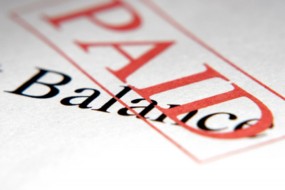![Five Simple Ways To Increase Loan Repayments]()
13 Aug 2015 | Home Loans, Personal Finance

Paying off a mortgage can seem relentless – every payment counts of course, but it can seem to be taking forever to make a dent. Here are some simple ways you can increase the amount you pay off and own your home sooner.
Reducing the principle on your mortgage as quickly as you can means paying less interest, so your future payments are going even further towards reducing that principle.
To find the ideal balance between the extra repayments you can afford to make and the time this will shave off your mortgage term, use a mortgage calculator.
For example, on a $350,000 loan at six per cent interest, a monthly repayment of $2100 will see a total term of 30 years and a total cost of just over $750,000, while paying just $500 per month on top of that will bring the loan term down to just under 19 years and the total cost to just over $580,000.
Boosting these monthly payments by a further $400 to $3000 will see the loan paid off in less than 15 years – halving its term.
So, here are five simple ways to increase those mortgage repayments.
Ignore the bank
Well, sort of. Don’t pay any attention to the amount that you are told is the minimum repayment, as long as you pay more. Work out the most you can afford to pay, think of this as your minimum repayment, budget for it and stick to it.
Treat yourself
Think of every step you take towards reaching your goal of owning your property outright as a way of treating yourself. Sure, an expensive bottle of wine is nice, but doesn’t taking a year off your loan taste pretty sweet, too?
Every single increase to your income, no matter how small, should be channelled into the debts that are incurring the highest interest. If this is your mortgage, send it there. Do the same with your tax returns, any bonuses at work and even cash gifts.
Track your spending
Download an app to track what you are spending your money on, and trim where necessary, channelling the savings into your mortgage payments.
Think of all those little things you don’t really notice yourself pulling out your wallet for. In one week, that extra coffee on Monday morning, a sandwich from the cafe instead of one you have made yourself, that round of shots you probably shouldn’t have shouted on Friday night and getting your nails done on Saturday add up to $150. Over a month, that’s $600. Increasing a monthly repayment from $3000 to $3600 could trim more than 10 years off the term of a $500,000 loan. Now how much do you really want that coffee?
Eyes on the prize
Watch the forecast term on your mortgage – seeing it go down will motivate you to work even harder.
Talk to an expert
Talking to your finance broker about refinancing options could reveal a way to pay down your debt sooner even without increasing repayments. We will be able to look into whether you may get a better interest rate or lower fees with another lender, or even with your own, and will be able to help minimise any refinancing costs.
This is especially important each time your goals or your financial circumstances change. If you are earning more than when you took out your loan, you have paid off a personal loan or a credit card since that time, or your property’s value has risen, we may be able to negotiate a far better deal than the one you are on.
For example, if we as your finance broker negotiated a cut in your interest rate of one per cent on a $500,000 loan, on which you are making $3500 monthly repayments, your loan term could drop from just over 25 years to 21 years.
As a MFAA Approved Finance Broker we are with you for life of the loan to make sure you’re always are getting the best deal you can from your mortgage. Call us today on 07 3911 1190 or fill in the contact form and we can discuss how we can help you own your home outright sooner.
![Five Simple Ways To Increase Loan Repayments]()
10 Aug 2015 | News

With the RBA setting the official cash rate at all-time lows, it’s a good time to work out how this impacts the interest rate on your home loan and whether you are getting a good deal or not.
When the interest rate on your home loan fluctuates, it can feel as though you don’t have control of your debt. Despite being frustrating, interest rate changes are a part of every loan’s lifespan and warrant your consideration.
The interest rates that banks charge on their home loans are influenced by the Reserve Bank of Australia’s (RBA) cash rate.
The cash rate is reviewed by the RBA on a monthly basis in order to safeguard Australia’s economic stability. The cash rate is the rate charged on loans made between the RBA and your lender. This, in turn, has a very strong impact on the interest rates your lender charges you.
“The RBA supports the banks with liquidity facility,” explains Advantedge General Manager Brett Halliwell. “The RBA is a bank to the banks. The cash rate is effectively the rate at which the RBA will lend to the banks, and what the banks effectively use as a reference rate for other things.”
When the cash rate is changed by the RBA, lenders decide whether or not to mirror the new rate in the interest they charge their mortgagees.
This is entirely up to the lender in question and depends on the market and how the lender is performing at the time of the cash rate change.
“If you look at the mortgage market, specifically by itself, it is very competitive,” Halliwell says. “It is about the lender trying to get the right outcome on the deposit side of the balance sheet within the context of a very, very competitive marketplace, but recognising that a reference rate has changed and, therefore, looking at where they stand.”
Some lenders choose to shift their interest rate changes higher than the RBA’s cash rate change and, in these instances, other lenders may be offering lower interest rates than the one you currently have.
Keeping track of how your lender manages cash rate changes and where that leaves you as the person paying the interest can be time consuming, and is made more difficult by fees, charges and the flexibility offered by different loan products, which all need to be weighed alongside the interest rate.
A simple way to regain control of your interest rate is to lock it in for a period, if you believe rates are not likely to fall further. Fixed rates offer less flexibility, but more certainty.
To discuss what changes to interest rates that lenders have made recently and how that may affect you contact us on 07 3911 1190 or use our contact form.
![Five Simple Ways To Increase Loan Repayments]()
6 Aug 2015 | Home Loans, Investor Loans

When you consider that a small flat in Sydney could set you back half a million dollars at the moment, saving a 20% deposit to buy that flat – $100,000 – can seem an insurmountable task. That’s where insurance can help.
Lenders mortgage insurance (LMI) may be an added expense, but it offers buyers the opportunity to dive into the property market earlier, without saving up an entire 20 per cent of the property’s purchase price as a deposit.
What is it?
LMI protects the bank or lender, should a home loan go into default, guaranteeing that the lender will get its money back if the property needs to be sold and there is a shortfall in repaying the loan.
While a 20% deposit generally provides a good buffer against any drops in property value over the life of a loan, LMI can also provide the same protection, meaning borrowers can purchase property with a smaller deposit.
What’s in it for you?
For the borrower, it may seem LMI is just another expense to cover. But insurance can mean that some buyers will be able to enter the property market with, for example, only a five per cent deposit saved. In the example above, a $500,000 property, this brings the deposit down from $100,000 to just $25,000.
And, if the market is hot and prices are rising rapidly, paying LMI so that you can buy now could be cheaper than taking the time to save a bigger deposit. In the time it takes to save a higher deposit amount, property prices may well have surged by more than cost of the insurance so, for some properties and purchasers, it can make good financial sense to purchase earlier even with the added cost of LMI, especially when you consider the rent that you would pay while you’re saving.
What you need to know
The insurance premium is generally a one-off payment, but you may be able to roll it into the loan amount so that you are paying for it month-by-month along with your mortgage.
There can be a big difference between premiums paid if you have, for example, a 10 per cent deposit saved compared with a five per cent deposit, so it may well be worth trying to gather together some extra funds, even if you despair of reaching the full 20 per cent.
Remember, the first thing you need to do is understand what your options are and that starts with your finance broker. So why not give us a call on 07 3911 1190 to chat about your plans today?




